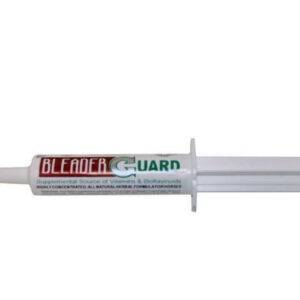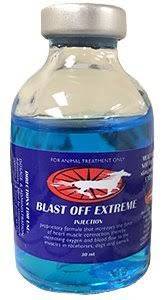Dexium SP
Dexium SP is a veterinary medication that contains dexamethasone, a potent synthetic corticosteroid. It is used to treat inflammation, allergic reactions, and a variety of other conditions in animals, including horses, cattle, and small animals. Here’s an overview of Dexium SP, including its uses, dosage, side effects, and precautions:
Active Ingredient:
Dexamethasone Sodium Phosphate: This is a fast-acting, water-soluble form of dexamethasone. Dexamethasone is a synthetic glucocorticoid with potent anti-inflammatory and immunosuppressive effects, used widely in veterinary medicine.
Uses of Dexium SP:
Dexium SP is used for several conditions that require the suppression of inflammation and the immune response. Common uses include:
Anti-Inflammatory:
Treats conditions such as arthritis, tendonitis, bursitis, and other musculoskeletal issues in animals.
Allergic Reactions:
Effective in managing acute allergic reactions such as anaphylaxis, insect stings, and allergic dermatitis.
Immune-Mediated Disorders:
Used to manage autoimmune diseases, where the animal’s immune system attacks its own tissues (e.g., immune-mediated hemolytic anemia, thrombocytopenia).
Shock and Trauma:
Administered in cases of trauma, injury, or surgery to reduce inflammation and stabilize the animal, especially in cases of shock.
Respiratory Conditions:
Used in treating respiratory diseases, especially chronic obstructive pulmonary disease (COPD) or heaves in horses, by reducing airway inflammation.
Endocrine Disorders:
Can be used to treat conditions related to adrenal gland insufficiency, where the body does not produce enough natural corticosteroids.
Cancer Treatment:
Sometimes used to alleviate pain and inflammation in animals undergoing cancer treatment or as part of a palliative care plan.
Dosage and Administration:
Administration Routes: Dexium SP can be administered via intravenous (IV), intramuscular (IM), or subcutaneous (SC) injection.
Dosage:
The dose depends on the species, weight, and condition being treated. It is typically administered in a low dose due to the potency of dexamethasone.
For horses, dosages typically range from 5 mg to 20 mg depending on the severity of the condition.
For cattle, similar doses are used.
For dogs and cats, the dose is lower, usually around 0.1 mg/kg to 0.5 mg/kg body weight.
Note: The dosage must always be determined by a veterinarian, and the medication should only be administered under their supervision.
Side Effects:
Dexium SP, like other corticosteroids, can cause side effects, particularly with long-term or high-dose use:
Increased Thirst and Urination: Animals may drink and urinate more frequently (polydipsia and polyuria).
Increased Appetite: Weight gain may occur due to increased appetite.
Immune Suppression: Long-term use suppresses the immune system, increasing the risk of infections.
Gastrointestinal Issues: Prolonged use can lead to ulcers or gastrointestinal bleeding.
Laminitis in Horses: Corticosteroids can increase the risk of laminitis, a painful condition affecting the hooves.
Adrenal Suppression: Long-term use can suppress the adrenal glands, leading to adrenal insufficiency if the medication is stopped abruptly.
Electrolyte Imbalances: Corticosteroids may cause sodium retention and potassium loss, leading to imbalances.
Muscle Weakness: Long-term use can lead to muscle atrophy or weakness.
Precautions:
Gradual Tapering: If Dexium SP is used for an extended period, it should be tapered off gradually to avoid adrenal insufficiency, as stopping suddenly can lead to a life-threatening condition.
Avoid in Active Infections: Dexium SP should not be given to animals with untreated bacterial, viral, or fungal infections due to its immunosuppressive effects unless they are receiving appropriate antimicrobial therapy.
Caution in Pregnant Animals: Corticosteroids may induce labor or cause abortion in pregnant animals, so they should be used with caution.
Preexisting Conditions: Animals with diabetes, heart disease, or gastrointestinal ulcers should be closely monitored, as corticosteroids can exacerbate these conditions.
Use with NSAIDs: Combining corticosteroids with non-steroidal anti-inflammatory drugs (NSAIDs) can increase the risk of gastrointestinal ulcers and should be done with caution.
Contraindications:
Active Infections: Should not be used in animals with untreated infections unless combined with appropriate antimicrobial therapy.
Diabetes: Use with caution in diabetic animals as corticosteroids can elevate blood glucose levels.
Pregnancy: Should be used with caution in pregnant animals due to the potential risk of complications.
Storage:
Store Dexium SP in a cool, dry place away from direct sunlight. It should be kept at room temperature and out of reach of children and animals.
Conclusion:
Dexium SP is a potent and fast-acting corticosteroid used to manage inflammation, allergic reactions, and immune-mediated conditions in a variety of animal species. While it is highly effective, it must be used with caution due to the risk of side effects, especially with prolonged use.
Proper dosing, careful monitoring for side effects, and tapering off the medication when needed are essential for ensuring the safety and well-being of the animal. Always administer under the guidance of a veterinarian.





Reviews
There are no reviews yet.